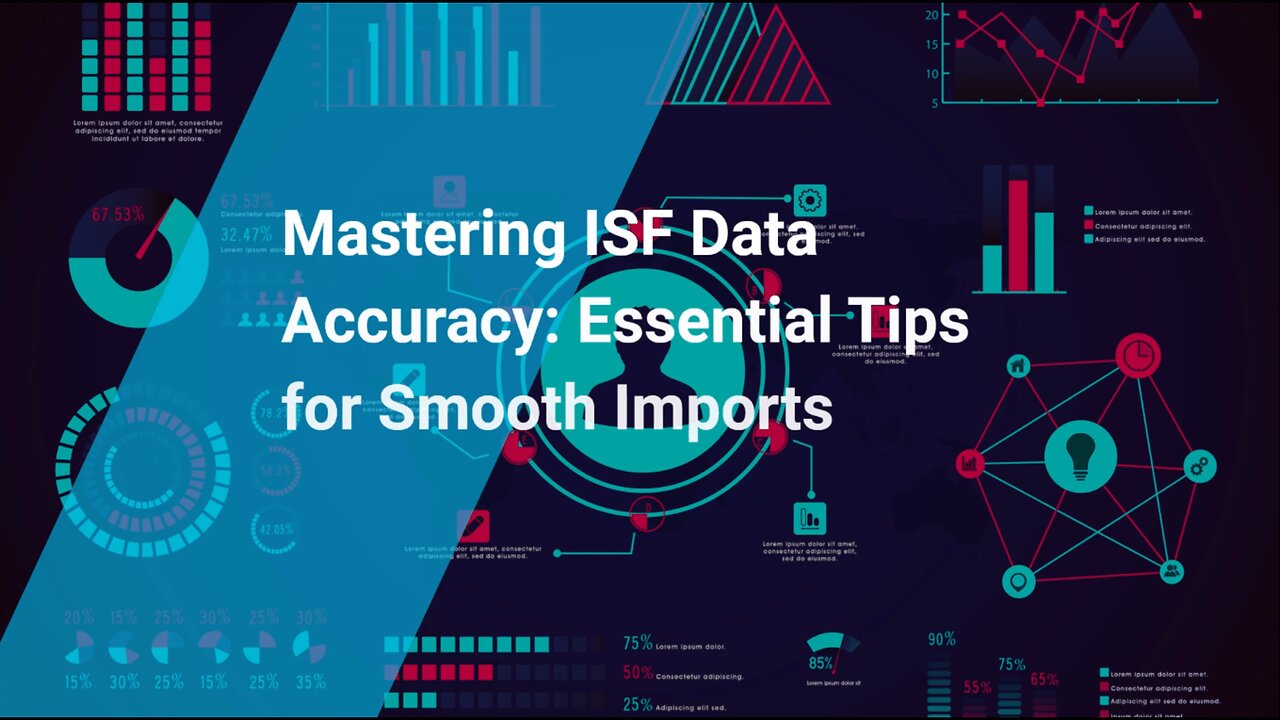Premium Only Content

Avoiding Penalties and Delays: Best Practices for ISF Data Submission
ISF Depot // 661-246-8217 // [email protected] // www.isfdepot.com
In this episode of our customs brokerage video series, we delved into the crucial topic of customs requirements for the accuracy and submission of Importer Security Filing (ISF) data. We discussed the importance of accurate ISF data and how it helps customs authorities assess the security risk associated with shipments. We highlighted the specific requirements set by the US Customs and Border Protection (CBP) for ISF submission, including the 24-hour deadline before the cargo is loaded. We also touched upon the mandatory data elements that must be included in the ISF filing, such as the manufacturer or supplier name and address, shipper name and address, and the HTSUS number.
To ensure ISF data accuracy, working closely with a customs broker is essential. They have the expertise to accurately classify goods, determine the necessary data elements, and ensure compliance with CBP regulations. Implementing internal controls and regular training can also help maintain data accuracy and prevent unnecessary delays and penalties. Inaccurate ISF data can have serious consequences, including financial liabilities, cargo holds, inspections, or even shipment denial. To ensure a smooth and accurate ISF data submission, we provided best practices including starting the process early, double-checking information, and maintaining clear communication with the customs broker.
Understanding the CBP requirements for ISF data accuracy and submission is critical for importers to avoid penalties and ensure a smooth import process. By following best practices and working with a knowledgeable customs broker, importers can minimize disruptions and ensure compliance with regulations. Thank you for watching, and stay tuned for our next video where we will explore another important aspect of customs brokerage.
#usimportbond #isfcustomsbroker #uscustomsclearing #isfentry
-
 3:16
3:16
ISF Depot
4 days agoEnhancing Global Trade: The Power of ISF Filing for Safety and Security
17 -
 1:51:40
1:51:40
Nerdrotic
9 hours ago $14.74 earnedGobekli Tepe Discovery and "Reconstruction" | Forbidden Frontier #118
77.7K8 -
 29:07
29:07
Tactical Advisor
9 hours agoATF Changes Ruling on SBR & Tacpack unboxing | Vault Room Live Stream 039
88.1K16 -
 2:00
2:00
From Zero → Viral with AI
14 hours ago $3.95 earnedAre You Being Left Behind? Why AI Marketing is No Longer Optional
47.1K5 -
 9:10
9:10
BlackDiamondGunsandGear
12 hours agoI Finally Got it! / Rough Country Build Ep.1
32.1K8 -
 9:44
9:44
Millionaire Mentor
3 days agoCharlie Kirk Brings Woke Student To STUTTERING Over White Privilege Lies
34.1K10 -
 24:12
24:12
MudandMunitions
13 hours agoOff-Roading with NYPrepper Wild Elk & PA’s Most Remote Backroads
21.3K1 -
 DVR
DVR
Bannons War Room
7 months agoWarRoom Live
37.4M8.69K -
 3:13:07
3:13:07
IsaiahLCarter
12 hours ago $1.09 earnedAPOSTATE RADIO 029: Leftist Violence, & NYC's Mayor's Race (Guests: Lattina Brown and David Sivella)
18.1K -
 10:03:41
10:03:41
LFA TV
19 hours agoLIVE: CHARLIE KIRK VIGIL SERVICE!
181K66